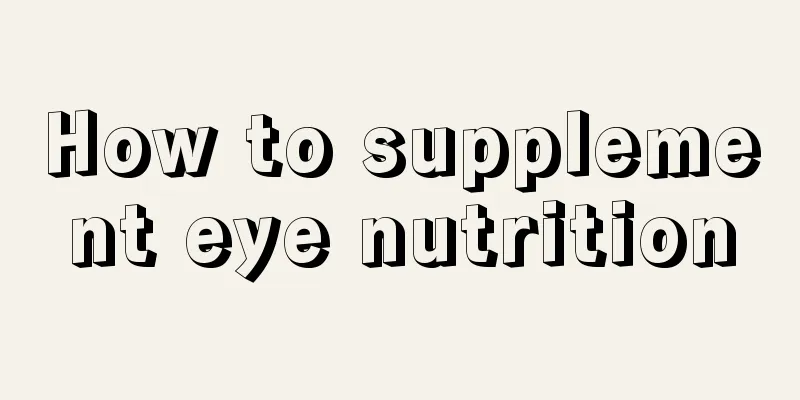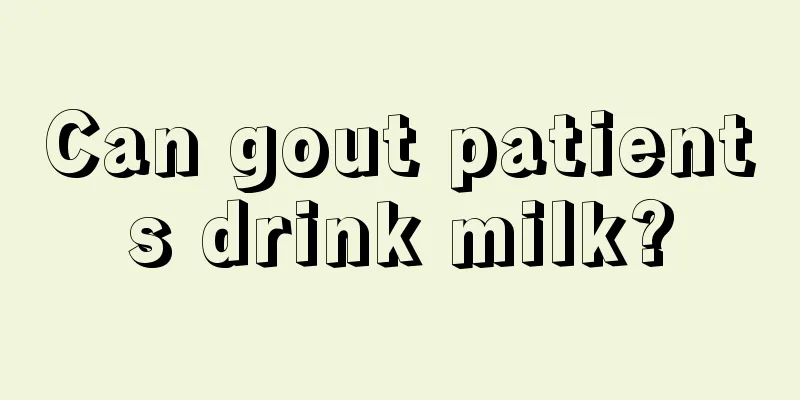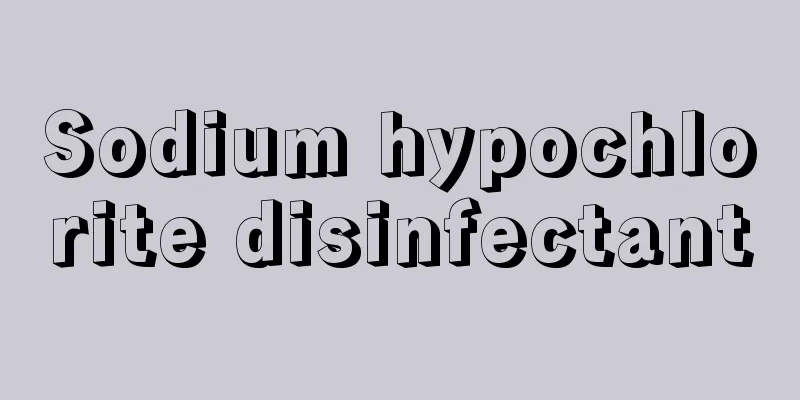How to supplement eye nutrition

|
In our life and study process, there are often many places that require a lot of eye use. Except for sleeping time, our eyes basically do not get a good rest. Therefore, it is very easy to experience eye fatigue and eye pain, and in severe cases it may even lead to bacterial infection and eye inflammation. In addition to using eye drops to temporarily relieve eye fatigue, it is also necessary to use some dietary therapy to supplement eye nutrition. Dietary therapy to supplement eye nutrition: 1. Vitamin A supplement Vitamin A is an important nutrient responsible for dim vision and light-dark vision. If there is a lack of vitamin A, a person's ability to adapt from light to dark will decrease, and people will feel unable to see clearly at night and have difficulty adapting to the changes in light and dark. Their eyes will also feel dry and difficult to move. Supplementary sources: The food richest in vitamin A is animal liver. Egg yolk and whole milk also contain a certain amount of vitamin A. The carotene in plant foods can be converted into vitamin A in the human body, so they are also a good source of vitamin A supplement. Foods rich in carotene include dark green leafy vegetables such as kale, cauliflower, spinach, lettuce, and Chinese cabbage, as well as orange and yellow fruits and vegetables such as carrots, pumpkin, mango, and citrus. 2. Supplement B vitamins Vitamin B in the B vitamins is called the "beauty vitamin". If you lack vitamin B, your eyes will be afraid of light, tear up, and the whites of your eyes will be covered with red bloodshot. Appropriate supplementation of vitamin B and pantothenic acid can relieve eye fatigue. Supplementary sources: Egg yolk, milk, yogurt, animal liver, kidney, lean meat, oats, whole grains, soybeans, various beans, yeast, etc. are the best sources of B vitamins. 3. Supplement lutein and zeaxanthin There is a pigmented area at the posterior pole of the retina, which is yellow in color due to its high concentration of lutein, so it is called the "macula". Lutein and zeaxanthin are the only two carotenoids in this tissue, which can effectively filter ultraviolet and blue-violet light to protect the eyes from damage. Supplementary sources: Dark green leafy vegetables such as kale, cauliflower, spinach, and lettuce are rich in lutein and zeaxanthin, especially spinach and amaranth. Orange-yellow fruits and vegetables such as carrots, pumpkins, mangoes, and oranges also contain lutein. Particularly worth mentioning is wolfberry, which has extremely high content of lutein and zeaxanthin. Wolfberry is often mentioned in traditional health care for its ability to improve eyesight. In addition, various egg yolks are an excellent source of lutein because the yellow color in egg yolk is mainly It comes from lutein and zeaxanthin. 4. Anthocyanins and flavonoids. Anthocyanins are pigments in plants. Anthocyanins and flavonoids are both polyphenols. They have the function of protecting microvessels and can improve blood supply to the eyes. At the same time, anthocyanins are also beneficial in accelerating the regeneration of rhodopsin protein, thereby reducing eye fatigue and sensitivity to weak light vision to a certain extent. Supplementary sources: Anthocyanins are found in blueberry, blackberry, mulberry, purple cherry, black currant, purple grape, bayberry, strawberry, cranberry, purple cabbage and other blue-purple and red-purple fruits and vegetables. They are also found in other plant foods such as purple sweet potato, black bean, red bean, and black rice. Generally speaking, the darker the blue, purple, red, and black, the higher the anthocyanin content. Mulberries are a food with a particularly high anthocyanin content. Flavonoids are mainly found in oranges, In citrus fruits such as lemons. If you want your eyes to be healthier and avoid being harmed by external radiation, you can supplement your eyes with more nutrients. Supplementing nutrients to your eyes is also a way to regulate your eyes and improve some adverse symptoms of the eyes. So to supplement nutrition for your eyes, you can eat the above foods. |
<<: What eye drops should I use for a stye
>>: What nutrients are rich in durian
Recommend
The latest diagnostic criteria for liver cancer
The occurrence of liver cancer brings great harm ...
Sandals season is coming, easy ways to avoid foot odor
Why do feet smell? Maybe your unintentional behav...
What does Cocamidopropyl Betaine do?
Cocamidopropyl betaine is a type of surfactant an...
What are floaters?
Floaters must never be ignored, because it can be...
Two lines on the test strip, no pregnancy
Generally speaking, if the test paper shows two b...
What is hemorrhagic fever? You should know these things
Hemorrhagic fever is relatively unfamiliar to man...
There are lumps in the skin pustules
In life, this situation often occurs. A hard lump...
What is the best way to take Chaga?
Chaga is a kind of fungus that grows on birch tre...
Some preventive measures for brain cancer
Brain cancer is very harmful to the human body. W...
What causes repeated blistering of lips
Many people have zero resistance to delicious foo...
How to care for advanced liver cancer? Introduction to advanced liver cancer care methods
When it comes to liver cancer, many people think ...
What is the cause of headache and dizziness
Headache and dizziness are common symptoms in our...
What are the precautions for tongue cancer treatment
The affluence of life has made people pay more an...
What should parents do when their children talk back
As children grow older, they will develop a stron...
Girls have broad shoulders, how to shrink their shoulders
In real life, it is a common problem for many peo...









